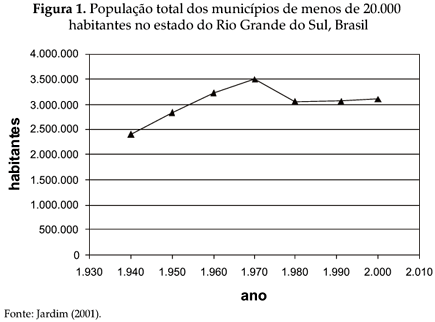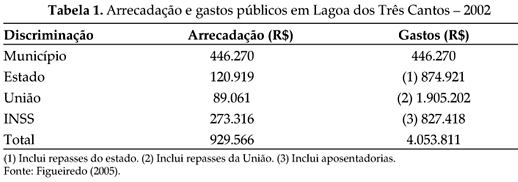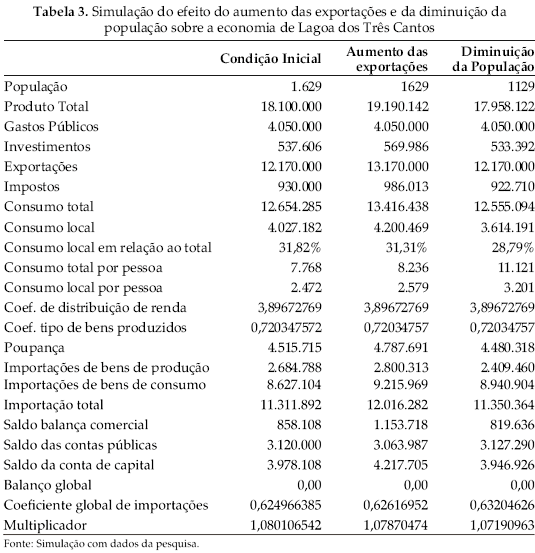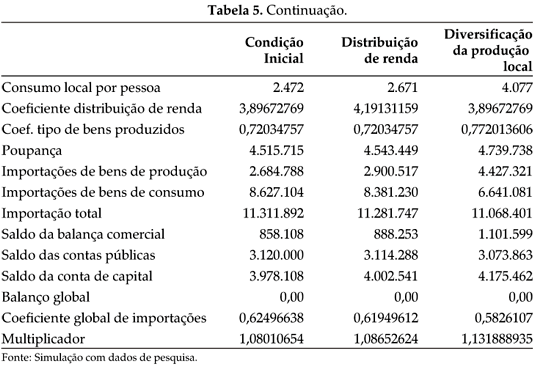The municipalities with less than 20.000 inhabitants sum up more than one-third of the total population of Rio Grande do Sul state. Based on the hypothesis that the wealth distribution, population and the agricultural dynamic can perform an important role in the development of such municipalities, a macroeconomic model that would allow the analysis of the influences of the factors previously mentioned on the local that economies were elaborated. Simulations carried out with such model, applied to a small agricultural municipality in the north of the sate (Lagoa dos Tres Cantos), have indicated that a more egalitarian distribution of wealth associated with a diversification of the production would cause a significant increase of demand for goods and services destined to the internal consumption with beneficial effects on the local economy, while increase in the production destined to exports has little impact on the local economy. Simulations have also shown that the decrease in the number of the population, as the one that occurred in the municipality during 1990 and 2002, causes strongly negative effects on the related demand. Therefore, support policies with regards to the maintenance of jobs in agriculture and that stimulate non-agricultural activities can perform an important role in this sort of municipality.
local development macroeconomics; wealth and income distribution; related demand; municipal development; rural municipals' economy













































